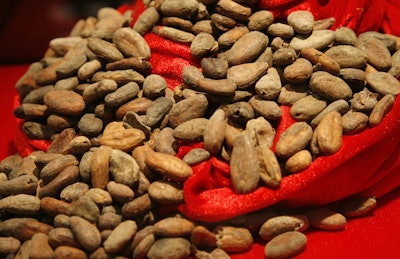
 Consumers in developed countries tend to take the humble chocolate bar for granted.
Consumers in developed countries tend to take the humble chocolate bar for granted.
But the world's multi-billion dollar chocolate market relies on a fragile plant and faces volatile global economic factors.
Cocoa prices surged last year amid increasing demand from emerging markets such as China and India, although the commodity has fallen off dramatically in recent days. Analysts also warned of a shortage in coming years.
Moreover, the cocoa plant is a particularly vulnerable one. About one-third of the global crop falls victim to disease, fungi or pests annually. An outbreak is Brazil cut the country's harvest in half and sent it tumbling down the list of top cocoa producers in recent years.
Attempts to resolve both issues meet at an unusual place: a row of greenhouses in the south of England.
Before a new variety of cocoa plant can be shipped throughout the world, scientists at the University of Reading's International Cocoa Quarantine Centre inspect it for potential diseases. Without the facility, a potential local outbreak could turn into a global agribusiness catastrophe.
"You certainly know all the work that goes into producing that chocolate bar, and all the potential threats that could be there in the future," Heather Lake, an ICQC technician, told National Public Radio.
As for the danger of housing potential pests in one place, Reading researcher Andrew Daymond told NPR the English weather ensures those diseases wouldn't get far outside the greenhouses.





















